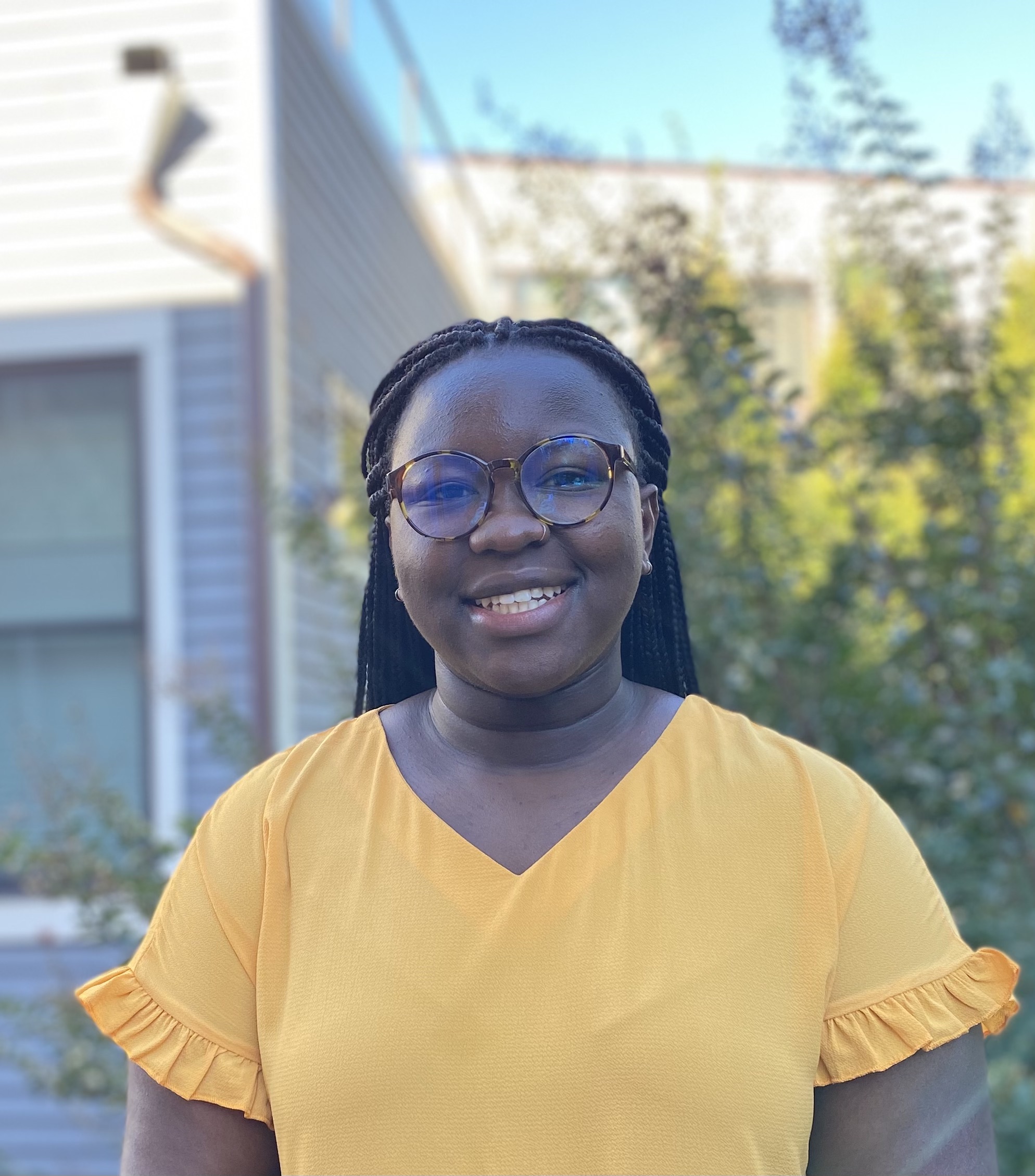As a Peace Corps volunteer in Mozambique, Samira Traore ’22 had to learn to shift on the fly. So when COVID-19 cut her assignment in the Southeastern African country from 27 months to 10 months, she pivoted to The George Washington University Milken Institute School of Public Health for an MPH in Global Health. “I went to Mozambique as a community health service promoter. I wanted to lean into that more and understand the role that public health professionals can play in the global community,” she says.
Traore started at Milken Institute SPH in September 2020, the same month she began a full-time job at the U.S. Bureau for Humanitarian Assistance. “It was a lot at once, but it was doable,” she explains. “I started as a program assistant for the Field and Response Operations (FARO) Supply Chain Management Division and moved up into the program coordinator role a few months ago.”
At FARO, Traore’s focus is data management. “We coordinate with humanitarian partners, like the World Food Program, to stand up disaster assistance response teams. I help furnish food assistance as well as non-food items—buckets, rolls of plastic sheeting, tarps, that sort of thing. I’m also the incident management coordinator, so if partners or warehouse staff have an issue—maybe something was damaged in transport or the commodity was wet or received moldy—I coordinate with USDA and others across the agency to sort those issues out.”
Traore enjoys her work with the U.S. Bureau for Humanitarian Assistance, where she is part of a team of nearly two dozen people who have diverse experiences. “I love the exposure to the international community and working with colleagues who come with such different backgrounds,” she says. “As someone who is early on in my career, I feel fortunate to have landed this position. It gave me the opportunity to put what I was learning in my master’s program to work right away.”
At Milken Institute SPH, Traore appreciated the tight-knit community in the Global Health program. “There was a group of about ten of us that all started together. It helped us form a strong network, which I found particularly helpful, particularly since I had just moved to a new city in a pandemic.” Traore says she was also “positively surprised” by the faculty’s wide range of personal interests, backgrounds and experiences—as well as their willingness to engage with students. “My advice to someone starting out in the Department of Global Health is not to wait,” she concludes. “Reach out to faculty right away and see what opportunities there might be for doing research in areas that might interest you.”


